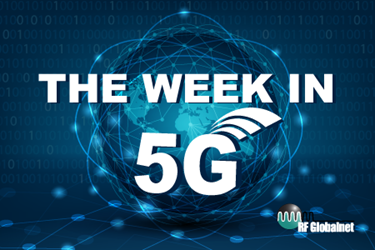The Week in 5G: 8/4/2020 — FCC Approves Amazon's Satellite Plans; U.S. Verizon 5G Users can Roam in S. Korea
By Ed Biller

Verizon claimed this week to have become the first U.S. operator to “complete 5G global roaming trials and have a commercially ready 5G global roaming service,” according to a press release from the carrier. Specifically, U.S. Version customers with a compatible device will be able to access 5G service in South Korea.
The device used for trials tested voice, data, and text messaging, and accessed 5G on 3.5 GHz spectrum in Korea. The release states the trial achieved average speeds of 252 Mbps downlink and 119 Mbps uplink, and that preparations for trials in other countries are underway.
In Australia, the CEO of carrier Telestra wrote in a blog post he expects the company’s 5G network to cover 75 percent of the country’s population by June 2021, noting that Telestra’s 5G network already covers around one-third of the Australian population, reports RCR Wireless.
In Israel, the tender for deploying 5G infrastructure opens this week and pits three telecom groups — (1) Partner and HOT Mobile, (2) Cellcom and XFONE, and (3) Pelephone — against one another in a bidding war. Per an Algemeiner report, the tender will be managed by Tal Elimelech, senior director for regulation and economy at Israel’s Ministry of Communication, and will include three frequency ranges: 700 MHz, 2.6 GHz, and 3.5 GHz.
United Kingdom communications regulator Ofcom has set the UK 5G auction for January 2021. In so doing, Ofcom rejected calls by some operators to scrap the auction format in favor of an allocation process, reports TechRadar.
As currently planned, the auction will make available 80 MHz worth of 700 MHz spectrum and 120 MHz of 3.6-3.8 GHz frequencies for 5G networks over two stages. “The principal stage will see participants bid for separate lots of spectrum and [the] assignment stage will determine specific frequencies. Operators will be able to negotiate between themselves so that their new spectrum is adjacent to existing frequencies,” states the report.
Retail giant Amazon, meanwhile, plans to send thousands of low-Earth orbit (LEO) satellites into space with dual aims: selling Internet connections directly to consumers and businesses, plus providing 4G and 5G backhaul connections to wireless network operators, states a Light Reading report.
The U.S. FCC approved Amazon’s plans in a 5-0 vote last week, clearing “Project Kuiper” to send up to 3,236 satellites into space. According to Amazon’s FCC filing, reports Light Reading, “the Kuiper system will be deployed in five phases, with services available after the company gets 578 satellites into orbit. FCC rules require Kuiper to launch and operate 50 percent of its satellites no later than July 30, 2026.”
